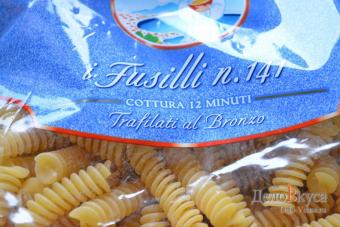Orthodox icons and prayers
Information site about icons, prayers, Orthodox traditions.
Maxim's name day according to the church calendar
"Save me, God!". Thank you for visiting our website, before you start studying the information, we ask you to subscribe to our VKontakte group Prayers for every day. Also visit our page on Odnoklassniki and subscribe to her Prayers for every day Odnoklassniki. "God bless you!".
Maxim is a masculine name of Latin origin. This name translated means greatest. The boy is distinguished by his eccentricity and originality of thinking. Maxim is very friendly. He is always ready to help.
Despite the fact that since childhood the boy has not caused any trouble to his parents. Over time, he may become unbalanced. Maxim is not a decisive person. He is devoid of ambition and pride.Character of the birthday boy
Maxim is one of the few people who has innate diplomacy. He understands all people very well without exception. He has the ability to convince anyone. Therefore, the bearer of this name often reaches “high peaks” in life. The boy has a unique ability to manipulate people. He tells any stories very vividly and sensitively. In “fairy tales of love” he has no equal. In addition, Maxim has a good memory and fairly developed intuition, which also helps him in his work.
It should be noted that from early childhood and throughout life, the main character trait is independence. Little ones always strive to do everything themselves without allowing their parents to help them. As an adult, he clearly knows what he wants. He reacts quite sharply to insults, but despite this, he responds to the offender with humor.
Angel Maxim's Day according to church calendar
According to the church calendar, Maxim’s name day is celebrated several times a year. But the most important date is considered to be the date closest to the day the child was born. This will be the day of the angel Maxim. Moreover, since ancient times it has been the custom that an angel’s day is much more important than a birthday. Therefore, it must be remembered and read without fail.
The date on which the patron saint with the name Maxim is venerated according to the Orthodox calendar is given in the table below.
May the Lord protect you!
Watch also the video about Maxim's Angel Day:
Maxim's birthday
Since childhood, Maxim has been interested in everything new. He studies well, all subjects are easy for him. He is a very inquisitive boy and reads a lot. He has a lot of friends. Adult Maxim usually has a difficult life. But he copes with all the problems on his own. True, sometimes his own character lets him down. He lacks willpower, perseverance and determination. Maxim is open to everyone, knows how to carry on a conversation, always listens and gives advice.
He doesn't understand people well and often makes mistakes about them. Very gullible, sometimes falls into the trap of his own gullibility. But when he realizes that he was deceived, he is offended and never trusts this person again. He usually learns from his own mistakes and considers it right. Performs his work responsibly and devotes most of his time to it. Maxims usually treat their wives very well, pamper them and allow them whatever they want. He doesn't cheat on his wife. Tolerates and accepts all the features of her character.
Fate: A man walking forward. Endowed with various abilities. He knows his capabilities well. He matures early. The life line is ascension.
The Saints: Maxim the Greek (name day February 3), Maxim Confessor (name day August 26), Maxim Moskovsky (name day November 24).
Angel Maxim Day
The name Maxim is of Latin origin and means “greatest.” Derived from the Roman cognomen (personal or family nickname) Maximus. For the name Maxim there is a related name Maximilian. The names are similar in sound and originate from the same cognomen, but it is often believed that the name Maxim is a form of the name Maximilian. It happens that you can affectionately call Maximilian this way, but these names correspond to different name day dates. The names Maxim and Maximilian are completely independent of each other, like two brothers are relatives, but each for himself.
The name Maxim is in the Orthodox calendar, and in the Catholic calendar it corresponds to the names Maximian and Maximus. Maxim's character greatly depends on what his parents emphasized during their upbringing. So, Maxim is characterized by both pride and ambition, but these traits should not cover the rest. It is very important that parents do not try to develop them in the boy. Maxim, who is not driven by ambition or pride, is a well-disposed person who is capable of achieving a lot.
Celebrating Maxim's name day
Maxim is a popular male name in many countries around the world. It is not limited to name days alone; the day of the angel Maxim is celebrated 21 times a year! Maxim translated from Latin means biggest, greatest, maximum. People with this name are smart, energetic, cheerful, very determined and ambitious.
Maxim's birthday
However, they can also be frivolous, often change their minds, and can be quite selfish, although they try to treat others with respect. Sometimes, especially with age, Maxim lacks perseverance and confidence, but this does not prevent him from achieving success and faithfully moving towards his goal. Maxims are excellent conversationalists, listeners and helpers. Maxim begins relationships with girls early, he searches for his soul mate for a long time, but in marriage he becomes a good husband, patient and attentive to his chosen one, and loves children very much.
This name was the name of a noble dynasty during the times of Ancient Rome, where it also became a family name. It was also popular among peasants in the 19th century, later it became widely used again in the USSR from the 1970s, and is still common today.
Since ancient times, on Maxim's Day (May 11), they began collecting birch sap, which was used to treat the sick. In Christianity, a name day is a day of remembrance of the saint after whom a person is named. From the list you can determine on what date name days are celebrated according to the Orthodox church calendar: In history there have been many bearers of the name Maxim, therefore this name also has many patrons. These are martyrs, and saints, and dioceses:- Maxim of Adrianople (martyr). He is honored on March 4th.
- Holy martyr, suffered from the persecution of Christians in Adrianopolis. He was born into a family of aristocrats, and together with a resident of the city he converted to Christianity, which made him stand out among the pagan population. He was publicly humiliated, subjected to cruel torture, but did not renounce his faith and died a painful death.
- Maxim Grek. He is honored on February 3.
- Michael Trivolis (in the world) was born in the Greek city of Arta in 1470. He was a translator of church books, his greatest work being the translation of the Psalter. He died after numerous exiles to monasteries. The relics of St. Maxim are now in the Refectory Church.
- Maxim of Kizicheskiy (eparch). The date of his veneration is also February 19.
- Holy martyr who suffered during the persecution of Christians in the city of Cyzicus between 305-311. In the process of repentance, he jumped into a burning cauldron and suffered a painful death.
- Maximus of Rome, (martyr), venerated on August 24, suffered martyrdom because he boldly confessed his faith in Jesus Christ.
- Maxim Dorostolsky, Ozovian, (martyr) - May 11.
- He, along with other martyrs Dada and Quintilian, suffered during the cruel reign of Emperor Diocletian. During the festival of paganism, three of them were executed as Christians, but they did not renounce their faith for a moment.
- Kavsokalivite, St. Maximus of Athos is venerated on January 26.
- At the age of seventeen, he left his father’s house, performed many feats of prayer, in order to avoid fame, he was constantly at the temple, portraying a holy fool. He lived a long life of 95 years and only shortly before his death left solitude.
- March 19 - The Venerable Martyr Maxim accepted martyrdom for confessing his faith in Jesus Christ. During the brutal persecution of Christians, he openly declared his faith, for which he was tortured for a long time, having nails driven into his head, and then his body was burned at the stake.
- December 19 - Metropolitan of Kyiv, St. Maxim.
Arrived in Rus' in 1283, the exact date of birth is unknown. Subsequently, he was appointed metropolitan in Kyiv, and during his service he introduced many rules for the conduct of rituals and fasts.
When to celebrate Maxim's name day
It is not surprising that many are wondering when is Maxim’s name day, because with so many angel days it is very difficult to understand what and how. And the answer is simple - the date of birth or the date following the birthday - name day.
For example, for Maxim, born on September 2, the date of the angel's day will be September 4. Maxim, who was born on May 13, will have his name day on the 15th of the same month. Since ancient times, the birthday celebration of Maxim, like the owners of any other name, was considered an important event in a person’s life.
All relatives and friends got together, went to church, distributed sweets, mostly gingerbread.On the eve of Maxim’s name day, the housewives prepared Easter cakes, pies, and brewed beer in large vats. In general, the name day was celebrated on a grand scale!
Nowadays it’s hard to imagine that name days are more important than birthdays; it’s rare that a person knows the date of their name days, and even more so rarely celebrates them, but before, birthdays weren’t celebrated at all.
In Rus', it was believed that a saint, who is revered on name day, becomes the heavenly patron of the bearer of the name, protects him from troubles, illnesses and helps him in every possible way. Small name days of a person are considered to be other days of veneration of the same saint.
During the baptism ceremony, the baby can be named by a name different from the date of birth, but this occurs only with the consent of both parents.
Nowadays, name day congratulations are mostly purely symbolic. Small gifts and cards can be given in words.
However, believers go to church on their name day, take communion and confess.
(2 votes, average score: 3,00 out of 5)Prayers to the saints
Prayer to St. Maxim the Greek
Commemoration: January 21 / February 3, June 21 / July 4 (Discovery of relics)
The Monk Maxim the Greek, after receiving an excellent European education and many travels around Europe, arrived on Athos and accepted monasticism at the Vatopedi monastery, where he enthusiastically studied ancient manuscripts. At the request of Prince Vasily Ioannovich, he arrived in Russia and began translating Greek liturgical books into Church Slavonic. He wrote apologetic and moralizing letters against Mohammedans, papism, pagans, as well as interpretations of St. John Chrysostom on the Gospels of Matthew and John.
For his straightforwardness and truth, he fell into disgrace under Metropolitan Daniel for many years: he suffered an unfair trial, false accusations, excommunication from Communion, prison, exile (a total of 26 years - six years in prison and 20 years in exile in Tver).
In the midst of suffering, the monk also acquired the great mercy of God. An angel appeared to him and said: “Be patient, old man! With these torments you will be delivered from eternal torment.” In prison, the reverend elder wrote with charcoal on the wall a canon to the Holy Spirit, which is still read in the Church: “Who fed Israel with manna in the desert of old, fill my soul, O Master, with the All-Holy Spirit, so that I may serve You with pleasure in Him.”
Only after twenty years of staying in Tver was the monk allowed to live freely and the church ban on him was lifted. The Monk Maxim the Greek spent the last years of his life in the Trinity-Sergius Lavra. He was already about 70 years old. Persecution and labor affected the health of the saint, but his spirit was cheerful; he continued to work. Together with his cell attendant and disciple Neil, the monk diligently translated the Psalter from Greek into Slavic. Neither persecution nor imprisonment broke the Monk Maxim.
St. Maxim the Greek is the heavenly patron of scientists, theologians, translators, students and seminarians. Prayerful intercessor for missionaries, catechists and apologists. They pray to St. Maximus the Greek for confirmation in the faith, strength of spirit and faith, understanding of Orthodox doctrine and Scripture, conversion of Gentiles and sectarians to Orthodoxy, they ask him for help and support during persecution for the faith and unjust oppression of the authorities. The Monk Maxim the Greek has the gift of healing for various diseases, especially depression and despondency.
Troparion to St. Maximus the Greek, tone 8
Let us look at the dawn of the Spirit, you have been vouchsafed to those who are divinely wise, you have enlightened the hearts of men darkened by ignorance with the light of piety, you have appeared as the most luminous lamp of Orthodoxy, Reverend Maximus, from jealousy for the sake of the All-Seeing Fatherland you are alien and strange, you were a prisoner of the Russian country, you have endured the sufferings of dungeons and imprisonment from the autocratic, You are crowned by the right hand of the Most High and you work miracles, glorious. And be an immutable intercessor for us, who honor your holy memory with love.
Kontakion to St. Maximus the Greek, tone 8
With the inspired Scripture and theology, through the preaching of the unbelievers, you have exposed the superstition of the unbelievers, you are all-rich, and moreover, having corrected you in Orthodoxy, you have guided you on the path of true knowledge, like a god-voiced pipe, delighting the minds of those who hear, constantly cheering, Maximus is most wonderful, for this sake we pray to Thee: pray to Christ God God for the forgiveness of sins send down by faith to those who sing your all-holy Dormition, Maxim, our father.
First prayer to St. Maxim the Greek
Reverend Father Maxima! Look upon us mercifully and lead those who are devoted to the earth to the heights of heaven. You are a mountain in heaven, we are on earth below, removed from you, not only by place, but by our sins and iniquities, but we run to you and cry: teach us to walk in your way, teach us and guide us. Your entire holy life has been a mirror of every virtue. Do not stop, servant of God, crying to the Lord for us. By your intercession, ask from our All-Merciful God the peace of His Church, under the sign of the militant cross, agreement in faith and unity of wisdom, destruction of vanity and schism, confirmation in good deeds, healing for the sick, consolation for the sad, intercession for the offended, help for the needy. Do not disgrace us, who come to you with faith. All Orthodox Christians, having performed your miracles and beneficent mercies, confess you to be their patron and intercessor. Reveal your ancient mercies, and to whom you helped the Father, do not reject us, their children, who are marching towards you in their footsteps. Standing before your most honorable icon, as I live for you, we fall down and pray: accept our prayers and offer them up on the altar of God’s mercy, so that we may receive your grace and timely help in our needs. Strengthen our cowardice and confirm us in faith, so that we undoubtedly hope to receive all the good things from the mercy of the Master through your prayers. Oh, great servant of God! Help all of us who flow to you with faith through your intercession to the Lord, and guide us all in peace and repentance, end our lives and move with hope into the blessed bosom of Abraham, where you now rest joyfully in your labors and struggles, glorifying God with all the saints , in the Trinity glorified, the Father and the Son and the Holy Spirit, now and ever and unto ages of ages. Amen.
Second prayer to St. Maxim the Greek
Oh, sacred head, reverend father, most blessed Abvo Maxim, do not forget your poor to the end, but always remember us in your holy and auspicious prayers to God. Remember your flock, which you yourself shepherded, and do not forget to visit your children. Pray for us, holy father, for your spiritual children, as if you have boldness towards the Heavenly King, do not be silent for us to the Lord, and do not despise us, who honor you with faith and love. Remember us unworthy at the Throne of the Almighty, and do not stop praying for us to Christ God, for you have been given the grace to pray for us. We do not imagine that you are dead, even though you have passed away from us in body, but even after death you remain alive. Do not give up on us in spirit, keeping us from the arrows of the enemy and all the charms of the devil and the snares of the devil, our good shepherd. Knowing that you are truly alive even after death, we bow down to you and pray to you: pray for us to Almighty God, for the benefit of our souls, and ask us time for repentance, so that we may pass from earth to heaven without restraint, from the bitter ordeals of the demons of the air princes and may we be delivered from eternal torment, and may we be heirs of the Heavenly Kingdom with all the righteous, who from all eternity have pleased our Lord Jesus Christ, to Him belongs all glory, honor and worship, with His Beginning Father and with His Most Holy and Good and Life-Giving Spirit, now and ever and ever. Amen.
Akathist to St. Maxim the Greek:
- Akathist to St. Maxim the Greek
Hagiographic and scientific-historical literature about St. Maxim the Greek:
- Venerable Maxim the Greek– Pravoslavie.Ru
- Venerable Maxim the Greek– Vladislav Petrushko
- New data about the Russian period of the life of St. Maxim the Greek– Nina Sinitsyna
- Venerable Maxim the Greek– Nikolay Kostomarov
Works of St. Maximus the Greek:
- Responses of Christians against the Hagarites who blaspheme our Orthodox Christian faith
- An accusatory word against the Hagaran error and against Mohammed, who invented it.- Saint Reverend Maxim the Greek
- Word 2, about the same thing to the pious against the God-fighter Mohammed; here is partly a legend about the end of this century- Saint Reverend Maxim the Greek
He grew up in the city of Lampaska. He was brought up at the Church of the Blessed Virgin Mary. When he turned 17 years old, he took monastic vows and began to obey the spirit-bearing elder Mark, the spiritual mentor of Macedonia. After the elder died, the Monk Maximus went to Constantinople and settled in the vestibule of the temple. He began to lead an ascetic life as a holy fool. Then he went to Athos, where he was awarded a vision of the Most Holy Theotokos. He told one of the local elders about this miraculous phenomenon, which he did not believe and accused Saint Maxim of delusion. Saint Maximus was able to turn such distrust to his advantage, since he began to come to terms with such a circumstance and set off to wander. He did not get himself a permanent home, and he burned all his kalivas - grass huts. That is why he was nicknamed Kavsokalivit (i.e., burning his kaliva).
When the Monk Gregory of Sinaite visited the Holy Mountain, he met with Saint Maximus. In a conversation with him, he was so touched that he was surprised at the holiness of the Monk Maxim Kavsokalivit. Saint Gregory begged him to leave the feat of foolishness and wandering and settle in one place. Reverend Maxim did just that. He chose one of the caves for his residence. Believers, and even the emperors John Palaeologus and John Cantacuzene, began to visit him. Before his righteous death, Saint Maxim left his solitary prayer and settled near the Lavra, where he departed to the Lord at the age of 95.
Maxim, like Julius, does not require resorting to anthroponymy - the science of names. Julius is born in July, Maxim is the maximum or, what is more suitable for a person, the greatest.
Famous Maxims
With the greatest, everything is somehow complicated, but among the great, Maxim Gorky instantly comes to mind. People of the older generation can name Maxim Perepelitsa, an extremely popular movie hero, like Ivan Brovkin. Cinema lovers will remember Max von Sydow. And absolutely everyone is familiar with the Maxim machine gun.
Unfortunately, none of them has anything to do with such a holiday as Gorky was named Alexey at baptism (Maxim is a pseudonym), Perepelitsa’s registration data can only be guessed at, and the name of the great Swedish artist Sydow can only testify to its internationality. The machine gun is named after the name of its creator.
Maxim's number of heavenly patrons

In our time, children are named based on personal choice, but almost everyone is baptized. Because in this way the child receives a heavenly patron, and it is rare that a parent will refuse this protection. At baptism, the baby is given the name of the namesake saint, whose memorial day coincides or is close to the day of the church ceremony.
By looking at the “Saints” - the church calendar - you can find out when the name day of Maxim or someone else is. Gorky's namesake has 31 such days every year. This is impressive. There are 2-3 of them every month. Only June remained uncovered, but November falls 5 All these holidays, except the main one, are called “small name days”.
This abundance is explained by the fact that the church calendar includes the dates of not only Orthodox saints, but also the great ascetics of Christianity in general. In ancient Rome, the name Maxim was popular, there was a dynasty bearing it. Until Christianity became the official state religion, its followers were persecuted. Having endured torture and suffered a painful death, they were canonized as saints by their grateful descendants. Therefore, celebrating Maxim’s name day means, first of all, paying tribute to the saints who bear this name.
Martyrs and righteous people who bear this name

The righteous and the martyrs, the holy fools for Christ's sake - they are all mentioned in the Saints. The Monk M. the Greek deserves special attention, whose memorial dates are February 3 and July 4 (the day of canonization and the day of the discovery of relics). He translated the Psalter and the Book into Russian
However, there is not comprehensive information about all the saints mentioned in the monthly book. Some dates on which Maxim’s name day falls according to the church calendar indicate, in addition to his name, only that he was a martyr (martyr). There are two Maximilians in this list - Constantinople and Melitino, patriarch and passion-bearer for the faith.
Maxim's name day, the date of which falls on March 19, April 2, May 13, November 5 and 10, will force the bearers of the name, whose angel days fall on these numbers, to spend a certain time to find out at least something about their heavenly patrons. But this knowledge is worth a lot. Sometimes, having already lived for a specific period of time, asking the question of what your guardian angel is, a person can look at his fate in a new way.

Isn't it interesting to know who the fools for Christ's sake are? These are people who have deliberately doomed themselves to vagrancy, cold and hunger; these are wandering monks and devotees of religion. For example, Maxim Totemsky, whose memorial date falls on January 29. Being the rector of the church, he deliberately became a fool for Christ's sake. Without a constant piece of bread and clothing, he led such a lifestyle for 40 years, lived to a ripe old age and was canonized by the Orthodox Church. In any case, having looked at the church calendar and learned everything about Maxim’s name day, the bearer of the name will not be upset at all about the number of his namesakes among the Christian saints.
Days on which the commemoration of two righteous people falls
There are metropolitans, philosophers, writers and translators here, but the overwhelming majority are the great martyrs and passion-bearers. This speaks of the strength of the human spirit, of love for the Lord, and of the fact that having such a heavenly patron is not bad at all. Therefore, the question arises about a guardian angel, about what they can mean to you. Maxim (or “the greatest”) can tell a lot about himself. There are dates on which the days of remembrance of two saints fall: February 3 and 12, April 23, August 26. This means that Maxim, who was baptized on this day, receives two heavenly patrons.
MAKSIM
HISTORY AND MEANING OF THE NAME MAXIM- Comes from the Latin word “maximus” - greatest, greatest, greatest.
Quite a good, gentle, but cold name. His main characteristics - slow, sedentary, reliable - are not expressed particularly clearly and intensely, but still allow us to define Maxim as a calm and reliable person. In the last century, the name was encountered frequently, then there was a decline in its popularity. Now it is becoming more common.
NAMEDAYS AND PATRON SAINTS OF MAXIM
Maxim of Adrianople, martyr, March 4 (February 19).
Maxim of Asia, martyr, from the merchants. With his preaching he converted many to Christ. Stoned for denouncing the pagans (III century), May 27 (14).
Maximus of Antioch, martyr, September 18 (5), October 22 (9).
Maximus Africanus, martyr, April 23 (10).
Maxim the Greek, reverend, February 3 (January 21).
Maxim Dorostolsky, Ozovian, martyr, May 11 (April 28). Together with the brothers Dada and Quintilian, he was beheaded by the sword in 286 under the emperor Diocletian. Maxim was offered to become a priest of the pagan temple of Zeus, but he firmly refused. And the brothers added that Maxim knows the Holy Scriptures well, and they follow him in everything. In prison, the devil appeared to them and attacked them with weapons. But the angel said that God would accept them to himself.
Maximus the Confessor, Rev., February 3 (January 21), August 26 (13).
Maximus of Kizicheskiy, eparch, martyr, February 19 (6).
Maximus of Constantinople, Patriarch, May 4 (April 21).
Maximus of Marcianopolis (Misian), martyr, September 28 (15).
Maxim Moskovsky, Fool for Christ's sake, August 26 (13), November 24 (11).
Maxim Martyr, November 10 (October 28).
Maxim Martyr, May 13 (April 30).
Maxim Pers, Kordulsky, martyr, August 12 (July 30).
Maximus of Rome, eparch, martyr, December 5 (November 22).
Maximus of Rome, martyr, August 24 (11).
Maxim Totemsky, priest, holy fool for Christ's sake. He labored on Mount Athos in the 13th century. He moved from place to place and, where he stopped, he built himself a kaliva - a kind of hut. Leaving this place, he burned it, for which he received the nickname of the kaliva burner, January 29 (16).
ZODIACALITY OF THE NAME MAXIM- Capricorn.
PATRON PLANET MAXIMA- Pluto.
COLOR OF THE NAME MAXIM- Raspberry, red, blue, orange.
RADIATION OF MAXIM - 93%.
VIBRATION MAXIM- 76,000 fps.
TALISMAN STONE MAXIMA- Amethyst.
PLANT MAXIMA- Ash, fuchsia.
ANIMAL MAXIMA- Mink.
MAIN CHARACTER TRAITS OF MAXIM- Intuition, reaction speed, sexuality.
HEALTH MAXIM -
TYPE MAXIMA- Balanced choleric person. It looks like it's about to explode, but it doesn't. He manages to be an excellent and unsurpassed mediator. He is hardy and flexible, just like his totem - the ash tree.
CHARACTER OF THE NAME MAXIM- This is a decisive person who knows how to convince anyone of anything. And when it comes to feelings and love, he simply has no equal. He has a talent for manipulating people. Maxim is incredibly arrogant and simply obsessed with his pride. He has a vivid imagination, an amazing memory and a sense of humor. Maxim feels like the master of life - and not without reason!
Remembrance Day was established by the Orthodox Church on May 14/27. The holy martyr Maximus of Asia suffered under the emperor Decius (249 - 251). Maxim was a layman and engaged in trade. He was a pious Christian, led many pagans to faith in Christ the Savior and convinced them to accept baptism. Once, when the pagans gathered to offer a human sacrifice to their gods, Saint Maximus was indignant and, unable to bear such a sight, rushed towards them, loudly denouncing their wickedness and delusion, calling idols soulless creations of people. The enraged pagans stoned the martyr. Maximus of Antioch, martyr
Days of remembrance were established by the Orthodox Church on September 5/18 and October 9/22.
Maximus Africanus, martyr All that is known about him is that Saint Maximus Africanus was a warrior and suffered for the Christian faith under the emperor Decius (249 - 251). Maxim the Greek, Rev. The Monk Maxim the Greek was born in Albania in the 15th century. Having wealthy parents, he received a good education, traveled a lot, studied science in European countries. However, he decided to devote his life to monastic feat. Having taken monastic vows on Mount Athos, he became a monk in the Vatopedi monastery and studied ancient Greek manuscripts. Then monk Maxim was instructed to go to Moscow to Grand Duke Vasily Ioanovich to translate Greek manuscripts into Slavic. For many years Maxim Grek worked diligently in Russia in the field of spiritual enlightenment. He translated many liturgical books and wrote several of his own works. But when Grand Duke Vasily decided to dissolve his marriage with Solomonia, Maxim the Greek boldly accused the prince of indulging sinful passions. For this, the monk was imprisoned in the Joseph-Volotsky Monastery. Maxim the Greek spent several years in captivity in terrible conditions, strengthened only by his faith in the Highest help. In 1531 he was tried a second time. Due to inaccuracies found in his translations, the monk was accused of damaging church books and exiled to the Tverskoy Monastery. Saint Maximus lived there under the supervision of Bishop Akakios, who treated him graciously, allowing him to read and write. Only after 20 years of staying in Tver was the saint released and all church bans lifted. Persecution did not break his spirit. Maxim the Greek settled in the Trinity-Sergius Lavra, where in the last years of his life he worked diligently on translating the Psalter into the Slavic language. The monk reposed in 1556 and was buried within the walls of the Trinity-Sergius Lavra. Many miraculous phenomena occurred at the tomb of St. Maximus the Greek. Maxim Dorostolsky, Ozoviysky, martyr
All that is known about the holy martyr Maxim of Dorostol is that he suffered for the true faith in the year 286 in the city of Dorostol together with the holy martyrs Dada and Quintilian. Maximus the Confessor, Rev.
Remembrance days were established by the Orthodox Church on January 21/February 3 and August 13/26.
During the life of St. Maximus the Confessor, the heretical movement of Monothelitism, which affirmed one (Divine) nature in the Lord Jesus Christ, became widespread. This trend and the enmity between nations of that time became a serious threat to the church unity of the East. Reverend Maxim the Preacher dedicated his life to the fight against the heretical movement. Through sermons, conversations and written works interpreting the Holy Scriptures, he sought to defend Orthodoxy. And his writings were successful both among ordinary people and among church ministers of various ranks, as well as among worldly leaders. After the death of Emperor Heraclius, the imperial throne was taken by Constance II, an ardent supporter of the Monothelites. Not least through the efforts of St. Maximus the Confessor, the Lateran Council condemned monothelitism, and its defenders were anathematized. When Emperor Constance received the Council's determination, he ordered the capture of the Monk Maximus as a traitor to his fatherland. The Monk Maxim was imprisoned and tortured. We will not mention the terrible details; we will note that having just lost the ability to speak and write after suffering, the Monk Maxim miraculously regained it. The Monk Maximus died on August 13, 662, having predicted the day of his death. Many miraculous healings took place over the grave of the Saint. All his works are undoubtedly a valuable theological heritage. Maximus of Kizicheskiy, eparch, martyr
Maximus of Constantinople - see Maximus of Marcianopolis (Misian), martyr
Remembrance Day was established by the Orthodox Church on September 15/28. The holy martyr Maxim lived during the reign of the cruel persecutor of Christians, Maximian. The holy martyr Maxim became famous for his pious life. He always acted according to the commandments of God and led many to true faith and holy baptism. When the persecution of Christians began, the holy martyr Maximus, together with the martyrs Theodotus and Asklias, were captured and given over to cruel suffering. The divine voice from heaven consoled and encouraged the stratotherders. Maxim Moskovsky, holy fool for Christ's sake When and where Blessed Maxim appeared in Moscow, no one knows. People only know the date of his death - November 11, 1434. He lived in difficult times when the Tatars raided Rus'. The people suffered from wars, droughts and epidemics. A man walked along the streets of the capital, almost without clothes, in winter and summer. He was poorer than the poor, but with an unusual soul. In Rus', people have always treated holy fools with love, and they also listened to Maxim. He spoke words of consolation to all those suffering: “God will give salvation for patience” and was not afraid to reproach the rich: “The Goddess is domestic, but conscience is corrupt; everyone is baptized, but not everyone prays.” Well, such a boldness at all times was forgivable only to the blessed one. Taking on the guise of a holy fool is perhaps the most difficult path to Christ, and it was this path that Maxim of Moscow chose and followed for the rest of his life. He was buried in a church in honor of princes Boris and Gleb. When various miracles began to happen from his relics, people realized that Maxim was a saint. Maxim Rimsky, martyr | ||||||||||||||||||||||





